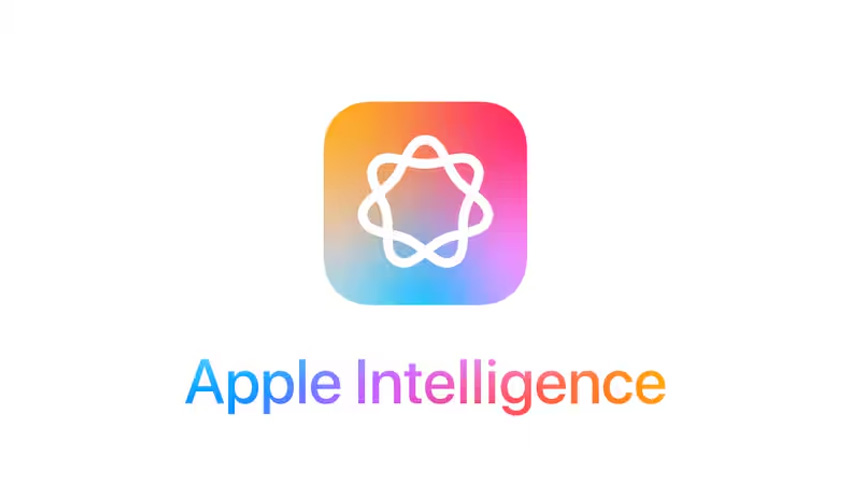Apple is advancing its ambitious AI vision with the public beta release of Apple Intelligence on iOS 18.2, iPadOS 18.2, and macOS Sequoia 15.2.
The latest public beta versions of these operating systems bring to the forefront some of the most exciting AI-driven features, including ChatGPT integration with Siri, innovative image tools, and a new generative AI experience dubbed Apple Intelligence.
This release marks an important leap in Apple's push towards integrating generative AI into its ecosystem, making it a standout feature across iPhones, iPads, and Macs.
The public beta of iOS 18.2 follows Apple's previous release, iOS 18.1, which introduced an array of AI tools, such as writing suggestions for documents and emails, and photo tools like Clean Up for removing unwanted elements from images. But it's with the latest beta that Apple Intelligence truly steps into the spotlight, offering an integrated suite of features that will reshape how users interact with their Apple devices.
Apple's new generative AI, aptly named Apple Intelligence , promises to offer a more personalized, privacy-conscious alternative to the AI models currently dominating the tech landscape. Apple describes its AI initiative as “AI for the rest of us,” aiming to simplify complex tasks through contextual understanding and predictive capabilities. Unlike the industry-standard generative AI tools, Apple Intelligence focuses on deeply integrating AI with Apple's hardware and software, enhancing user experience while maintaining its commitment to privacy.
The AI features include GenMoji , a tool that creates unique avatars based on your photos, Image Playground, which allows users to generate images from prompts, and integrations with ChatGPT that bring sophisticated text generation and writing assistance directly to Apple’s ecosystem. All of these tools are designed to operate on Apple devices with seamless interaction, keeping the user experience intuitive and secure.
The Power of Siri Reimagined
One of the most significant updates brought by Apple Intelligence is to Siri. The voice assistant has undergone a major redesign, enhancing its natural language processing abilities and making it more intuitive than ever. Siri can now handle more complex tasks and understand context across multiple apps. This means that, instead of just responding to commands, Siri can help users manage schedules, navigate traffic, and even assist with personalized recommendations based on their preferences and habits.
Additionally, Siri will now feature a new design, including a glowing border when active and a double-tap gesture to type commands. This level of interaction is a breakthrough in making Siri feel like a more natural, conversational tool.
Perhaps most notably, Apple Intelligence allows users to interact with Siri through typing, marking a major shift in how the virtual assistant functions. This new voice and text integration positions Siri as not just a voice tool but a comprehensive assistant capable of handling more advanced tasks with a greater level of understanding.
Siri meets ChatGPT
One of the most intriguing features of Apple Intelligence is its integration with ChatGPT , bringing powerful generative AI capabilities to Siri. The iOS 18.2 beta will allow users to request responses from ChatGPT directly through Siri, merging the convenience of Apple’s voice assistant with the deep conversational abilities of OpenAI’s AI model.
Users will no longer need to juggle between apps to access ChatGPT’s writing suggestions, conversational prompts, or summaries. Siri will handle it all seamlessly, responding with a more human-like tone and providing solutions that are tailored to each user's unique preferences.
What makes Apple Intelligence unique?
What sets Apple Intelligence apart from its competitors is its emphasis on user privacy. Unlike other generative AI tools, which process data on third-party servers, Apple’s AI is designed to work on-device as much as possible. This approach ensures that personal data is kept secure, and the AI adapts to individual user preferences without compromising privacy.
Apple’s emphasis on privacy is one of the most significant differentiators in the crowded AI market. By processing data locally on devices and only occasionally sending information to the cloud (via Private Cloud Compute ), Apple ensures that user data is not only secure but also personalized to a higher degree.
Lisa Eadicicco, a writer for CNET , explains that Apple Intelligence is built to consider multiple personal context factors when generating responses. For example, Apple’s AI can factor in your calendar, contacts, and even real-time traffic conditions to help you manage your day more efficiently. This personalized approach gives users an experience unlike any other AI on the market.
At the moment, Apple Intelligence is available for testing through the public beta on select devices. The compatibility list includes the iPhone 16 series, iPhone 15 Pro and Pro Max, as well as iPads and Macs with an M1 chip or later. This list features some of Apple's most powerful hardware, such as the iPhone 16 Pro, iPad Mini with the A17 Pro chip, and MacBook Pro models powered by M1, M2, or M3 chips.
Apple’s strategy of rolling out Apple Intelligence to only a select set of devices initially has raised concerns about its accessibility. However, with support for the iPhone 15 Pro series and the latest iPads and Macs, the core Apple user base is still well-positioned to enjoy the benefits of this next-generation AI.
What’s next for Apple Intelligence?
Looking ahead, Apple plans to roll out additional features and capabilities for Apple Intelligence , with broader language support expected in 2025. Initially, Apple Intelligence will be available in the United States, with localized English versions expected for the UK, Australia, Canada, New Zealand, and South Africa by December 2024. As Apple continues to refine its AI technology, the potential for new features—ranging from more personalized Siri interactions to even more powerful writing and image tools—remains high.
Is Apple Intelligence free?
Apple has stated that Apple Intelligence will be available for free with no announced plans for charging users for its services. This makes Apple Intelligence not only an exciting feature for those looking to enhance their productivity and creative potential but also a compelling option for Apple device owners seeking more intelligent, privacy-focused AI tools.


























